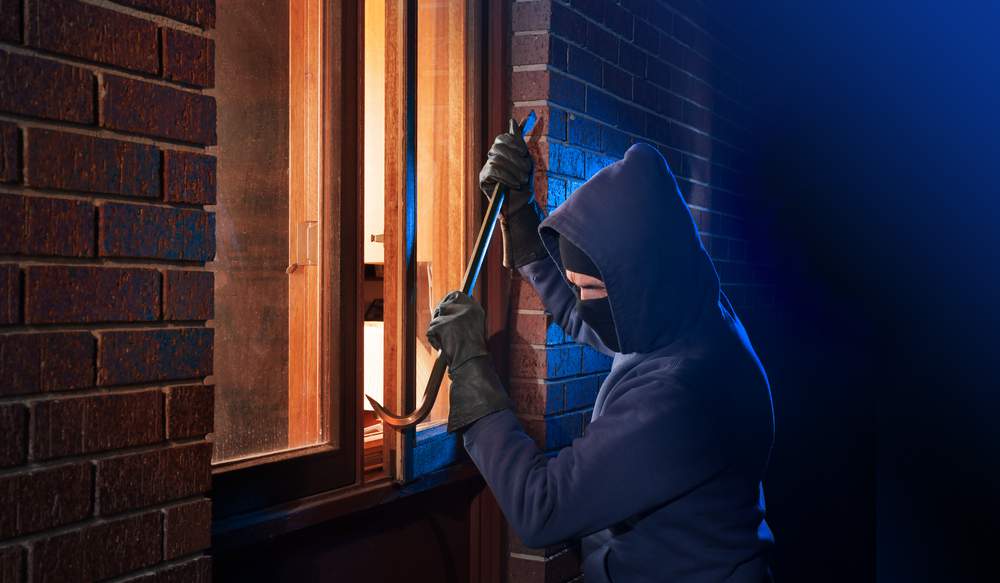
Having a house broken into can be a traumatic experience for any homeowner. While it’s an unsettling event, it also can be costly. The FBI reports that an average $2,316 worth of items are stolen when a home is burglarized. These numbers are based on 2015 reports.
With more than 1.5 million burglaries occurring in 2015, a home is broken into on average about every 20 seconds. Given the prevalence, it’s important to understand how homeowners insurance covers a break-in.
Are my stolen items covered?
Standard homeowner and renters policies typically cover stolen items and damage to a home resulting from a break-in. The homeowner's insurance policy usually covers personal belongings for about 50 percent to 70 percent of the amount of insurance a consumer has on the structure of their home.
There are usually limits on certain personal items, though. Valuable belongings, such as jewelry, aren’t necessarily covered for their full worth. In order to get full coverage on these specific items, consumers can obtain an endorsement or floater after having their items appraised. This allows a homeowner to increase the coverage limits on an individual item or a collection. There is no deductible involved with endorsements, but the higher coverage limits will result in a more expensive premium.
Homeowners should check with their insurance provider to find out their specific coverage limits.

Create an inventory list
When buying a homeowners insurance policy, it’s important for the insured to know how much coverage they need. The best way to do this is to create a home inventory list, which should be kept outside the home or stored online.
The benefits of having a list are two-fold. Not only does it provide a monetary assessment of a homeowner’s belongings, but it also provides documentation of what items a homeowner has in the event items are stolen or damaged. After filing a claim, an insurer will request a list of all stolen items. Having an inventory list with appraised values of items is a great step to reduce the amount of time and stress associated with determining what was stolen and its value.
An alternative to creating a written inventory list is documenting your home room by room with photos or a video. Additionally, keeping receipts of valuable items is a great way to prove which items a homeowner has.
Protect your home from intruders
To help lower the chances of ever having to file a claim for a break-in, there are steps homeowners can take to improving the security of their home.
Installing a home security system is a great way to protect a home from burglars and often qualifies consumers for a discount on their homeowners insurance policy.
Other good practices, such as always locking the doors and windows when no one is home, seem like common sense. But it’s important for homeowners to always check before they leave, especially if they are leaving their home unattended for a long period of time.
Learn more about what homeowners insurance covers in "The basics of home insurance."
The content on this site is offered only as a public service to the web community and does not constitute solicitation or provision of legal advice. This site should not be used as a substitute for obtaining legal advice from an insurance company or an attorney licensed or authorized to practice in your jurisdiction. You should always consult a suitably qualified attorney regarding any specific legal problem or matter. The comments and opinions expressed on this site are of the individual author and may not reflect the opinions of the insurance company or any individual attorney.







